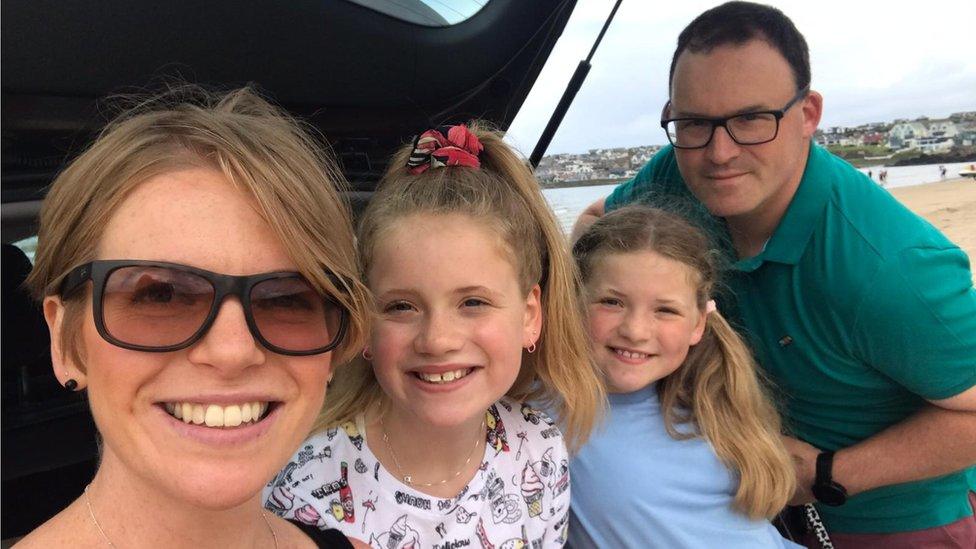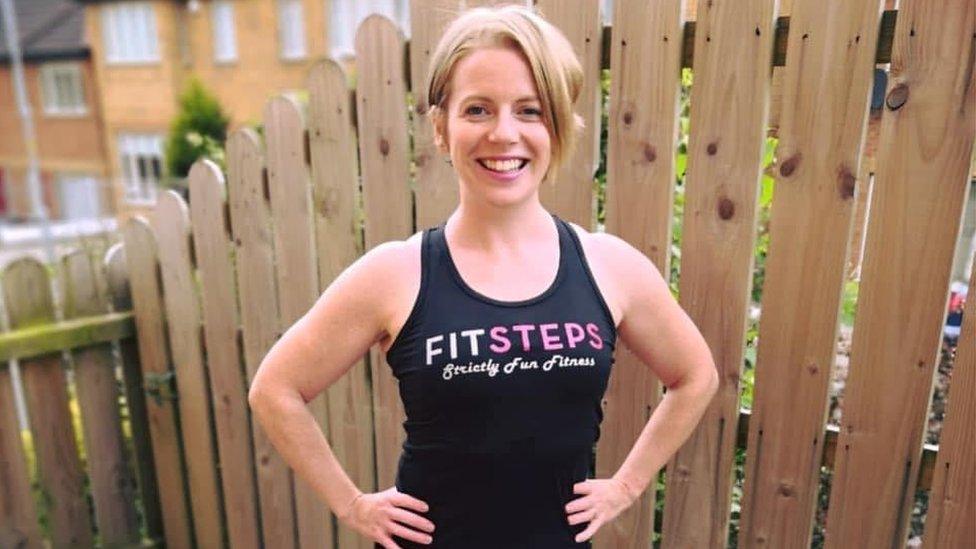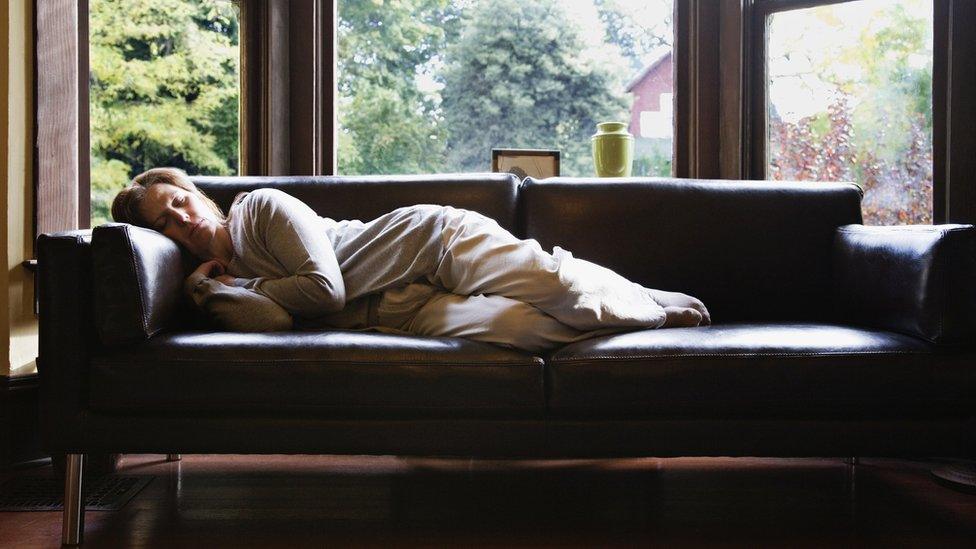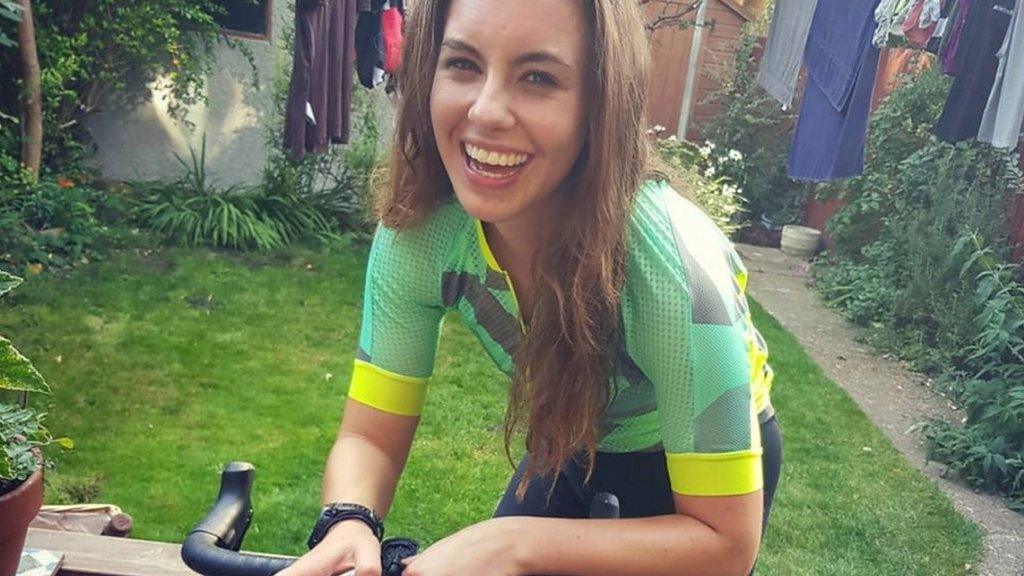Long Covid: 'I thought I'd get over this no problem'
- Published

Six months after getting coronavirus, Rebecca Logan is still feeling the effects
"We all thought we would get Covid. but we never really thought it would be a bad thing.
"I was young, I was fit, I was healthy."
Rebecca Logan, a fitness instructor and part-time nurse, began to feel unwell in April.
The 39-year-old mother of two felt dizzy and lost her sense of taste and smell.
"When I got the positive test, I thought: 'Okay, this is maybe how it's going to be for the next few days and then I'll pick up.'
"What happened to me was that, by day 14, whenever you usually expect to feel better, I actually was a lot worse."
Five weeks later, however, and Rebecca was still not feeling better.
Now, more than six months later, she still suffers from breathlessness, "brain fog" and has to take daily naps.
Rebecca believes she has so-called long Covid - a term being used to describe a range of symptoms identified in people months after they have had the virus.

What is long Covid?
There is no medical definition or list of symptoms shared by all patients - two people with long Covid can have very different experiences.
However, the most common feature is crippling fatigue.
Others symptoms include: breathlessness, a cough that won't go away, joint pain, muscle aches, hearing and eyesight problems, headaches, loss of smell and taste as well as damage to the heart, lungs, kidneys and gut.
Mental health problems have been reported including depression, anxiety and struggling to think clearly.

It is estimated that as many as 60,000 people in England could have post-Covid conditions and NHS England has committed £10m to fund specialist clinics.
Nothing like this has been announced yet for Northern Ireland, but Stormont's Department of Health said it had set up a Strategic Clinical Advisory Cell to establish a clinical working group.
It said it expected "a regional multidisciplinary working group will be formed to provide continuing guidance" on the future needs of patients.
BBC Radio Ulster's Evening Extra revealed this week that none of Northern Ireland's health bodies are collating data on the number of people who are still suffering with symptoms associated with the virus.
The Department of Health said "an agreed clinical definition of long Covid is required before numbers can be officially recorded".

Rebecca tested positive for Covid-19 in early April
This definition is being developed by the National Institute for Health and Care Excellence (NICE) which advises GPs on how to treat medical conditions.
Dr Toby Hillman is a respiratory consultant at one of the UK's first post-Covid clinics, based at University College Hospital in London. He is also helping NICE to define the condition.
"We accept the evidence is not great at the moment, that it's starting to be generated in ever greater depth and quality but the definition is going to change," he said.
"The definition is likely to include clinical diagnoses of this disease because we're aware of the difficulties of accessing testing and the problems with confirmatory testing, so it's going to be a fairly broad church."
Rebecca said she needs support now: "People need to recognise that long Covid is a condition and that people need help physically and mentally because you feel so alone.
"People look at you whenever you say you're still not feeling great and you're still not able to do things because they think: 'Sure Covid, you get it and you're better in 14 days, what's the problem?'
"It's a very lonely position to be in."
Related topics
- Published6 October 2020

- Published7 October 2020

- Published8 September 2020
